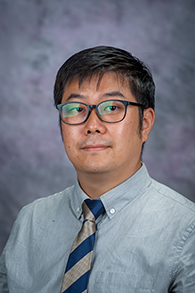Kim awarded NSF grant to develop next-generation wound treatment
MANHATTAN — Jungkwun "JK" Kim, assistant professor in the Mike Wiegers Department of Electrical and Computer Engineering, has received a National Science Foundation grant to develop a next-generation wound treatment that also resists infection through microneedle-mediated adaptive phototherapy, or MAP.
Kim, a Michelle Munson-Serban Simu keystone research scholar in the Carl R. Ice College of Engineering, will lead K-State’s portion of the $500,000, three-year project, "Collaborative Research: Microneedle-mediated Adaptive Phototherapy (MAP) for Wound Healing," alongside his colleague from Temple University, Albert Kim. Funding was awarded through the NSF Division of Electrical Communications and Cyber Systems and will be split as two collaborative grants, one for each institution.
Kim said his therapy is necessary due to the prevalence of a wide variety of medical conditions, including diabetes, obesity, poor circulation, neuropathy and difficulty moving, as well as aging, that cause wounds that don’t resolve for months at a time.
"Further complications, such as a particular microbial consortium, can cause destructive inflammation, often resulting in significant morbidity," he said. "Therefore, simultaneous wound healing and antimicrobial effects have to be locally addressable for a translational solution. Microneedle-mediated adaptive phototherapy wound dressing will enable 3D spatial wound sensing and multifunctional pH-sensitive treatment, aiming at physical tissue healing and pathogenetic bacterial infections."
The project aims to create a wound dressing that is superior to conventional wound dressing.
"The MAP will autonomously treat chronic wounds, controlled by the state of the wound, without the need for any electronics or interaction with medical professionals," Kim said.

